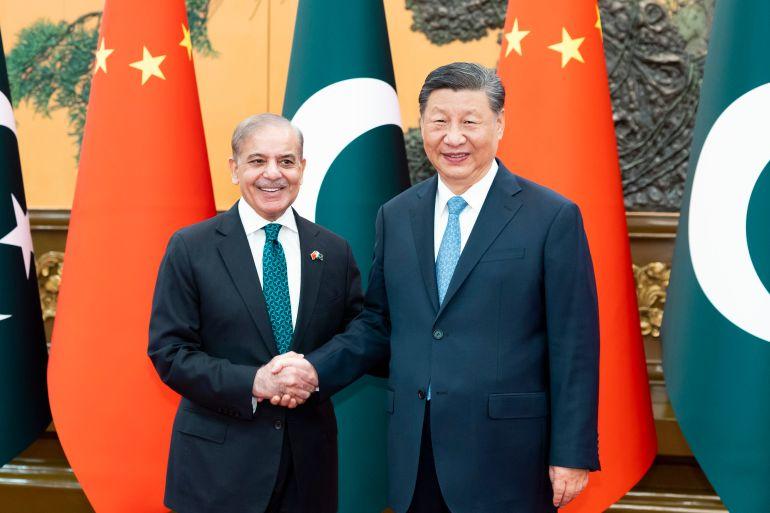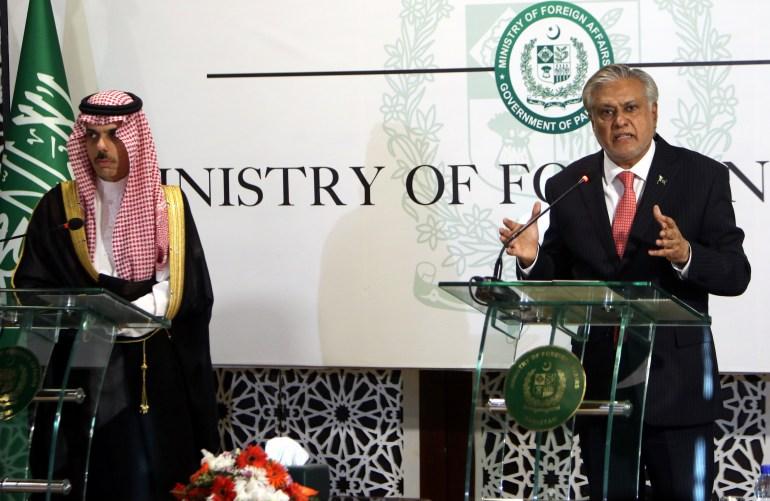Source: ALJAZEERA
ALJAZEERA MEDIA NETWORK

Pakistani PM Shehbaz Sharif's recent visits to China, Saudi Arabia, and the UAE seek investment to boost Pakistan's ailing economy, but experts suggest internal reforms are needed first.
Islamabad, Pakistan — In recent weeks, Pakistani Prime Minister Shehbaz Sharif has sought to encourage investments from Pakistan’s three principal allies — China, Saudi Arabia, and the United Arab Emirates — aiming to bolster the country’s struggling economy.
Last June, the Sharif administration established the Special Investment Facilitation Council (SIFC), a high-level body composed of both civilian and military leaders, to advocate for investments in Pakistan.
Following his tours to Beijing, Riyadh, and Abu Dhabi, Sharif highlighted numerous memorandums of understanding (MoUs) signed during these trips, signaling potential future investments.
Nevertheless, analysts argue that attracting foreign direct investment (FDI) hinges on ensuring political stability and implementing structural economic reforms within Pakistan.
So, what exactly did Pakistan gain from Sharif’s trips, and what steps are necessary to attract investments as they prepare for discussions with the International Monetary Fund (IMF) for their 24th loan program since 1958?
 Saudi Foreign Minister Prince Faisal bin Farhan Al Saud visited Pakistan in May this year
Saudi Foreign Minister Prince Faisal bin Farhan Al Saud visited Pakistan in May this year
After resuming office in March, Sharif visited Saudi Arabia twice in April. These visits were followed by a series of meetings between senior Saudi officials and their Pakistani counterparts, discussing potential cooperation, including a $5bn investment package.
Ali Farid Khwaja, chairman of KTrade Securities, noted that Pakistan has outlined six primary areas for Saudi investment: an oil refinery, agriculture, mining, the power sector, technology, and aviation.
![Saudi Foreign Minister Prince Faisal bin Farhan Al Saud visited Pakistan in May this year. [Sohail Shahzad/EPA]](/wp-content/uploads/2024/06/sohail-shahzad-1718408620.jpg?w=770&resize=770%2C501)
While Pakistani officials remain optimistic about Saudi investments, discussions on the proposed $5bn investment are ongoing, with no finalized agreements yet.
Sharif also visited the UAE in late May, where he met President Sheikh Mohammed bin Zayed Al Nahyan. Following this meeting, the UAE committed to investing $10bn in various sectors in Pakistan.
Although the UAE Ministry of Investment confirmed this pledge, specific details regarding the sectors and investment timeframe are still pending.
Sharif’s significant five-day visit to China in June, accompanied by military chief General Syed Asim Munir, was critical. Despite numerous MoUs signed during the visit, concrete agreements on specific projects were lacking.
China and Pakistan committed to enhancing security and upgrading the China-Pakistan Economic Corridor (CPEC) to support Pakistan’s development. However, the exact nature of these projects remains unclear.
Since forming the SIFC, Pakistan has claimed it has facilitated investment opportunities. Despite a recent increase in investments, analysts suggest Pakistan's political instability and structural economic issues hinder substantial foreign investment.
Economic experts argue that Pakistan must conduct comprehensive reforms and provide a reliable investment roadmap to attract both domestic and foreign investors. The recent foreign visits underscored Pakistan’s financial desperation and the need for internal economic reforms.
To achieve economic stability, Pakistan’s government should emphasize domestic reforms rather than relying heavily on foreign support. Developing a conducive environment for local investors could provide a strong foundation for attracting foreign investments.
Your email address will not be published. Required fields are marked *